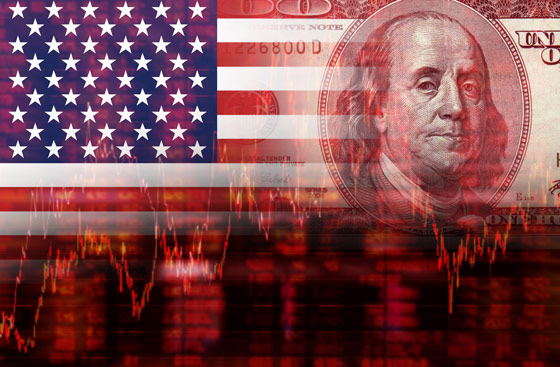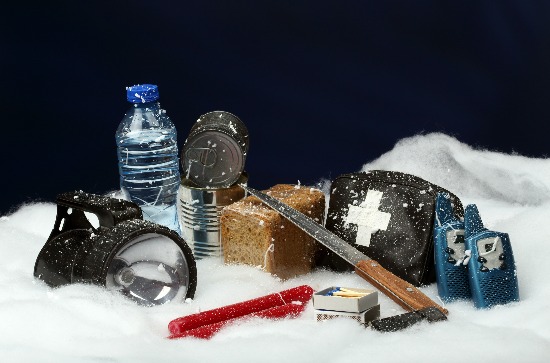15 Best Ways to Save Money Fast

Have you ever looked at your bank account and wondered where your money went? You didn’t splurge on a new truck or go wild at the gun show, yet somehow the dollars keep disappearing. That’s because it isn’t always obvious where your money went. Some very simple budgeting mistakes can create huge problems, leading you to looking for ways to save money fast.
The truth is that the best ways to save money fast revolve around getting rid of what you shouldn’t spend money on in the first place!
Below you can find 15 common things that quietly drain your wallet every month along with better alternatives and smart fixes to help you reclaim your hard earned cash.
Streaming Subscriptions You Don’t Use
If you’re like most folks, you’re paying for at least one of these streaming services and only watching one or two regularly. The charges seem small individually, but they stack up fast.
Better alternative: Do a streaming audit every 3 months. Cancel everything you’re not using, then rotate one service at a time. You can also take advantage of free trials or use free, ad supported platforms or other similar channels. On the plus side, your local library most likely offers free streaming access.
Old Light Bulbs, Also Known as Incandescents
Incandescent bulbs waste 90% of their energy as heat. If you’ve still got a few hanging around your home, they’re pulling more power and more money than you think.
Better alternative: Switch to LED bulbs throughout your home. Not only do they use up to 80% less energy, but they also last 10 to 25 times longer than traditional bulbs. They’re more expensive upfront but save you in the long run both on your bill and in replacement costs.
Bank Fees
Monthly maintenance fees, overdraft charges, ATM fees, and transaction penalties quietly siphon away your funds. Big banks especially are notorious for these nickel and dime tactics.
Better alternative: Move your money to a credit union or online bank with no monthly maintenance fees and better interest rates. Use only in network ATMs, and set up low balance alerts to avoid overdraft fees.
Keeping Electronics Plugged In
Even when turned off, your microwave, TV, chargers, and coffee maker still draw energy. Known as “phantom load,” this silent power drain costs the average household $100–$200 annually.
Better alternative: Plug devices into smart power strips that cut power when not in use. Unplug high drain items completely if you only use them occasionally. Bonus: unplugging also protects devices from power surges during storms.
Unused Gym Memberships
We all start the year with motivation, but by spring, many gym cards are collecting dust. That $30–$70 per month is a luxury you might not be using.
Better alternative: Cancel your membership and switch to home workouts. Use YouTube fitness channels, free fitness apps, or low cost equipment like resistance bands and kettlebells. Walking, hiking, or bodyweight workouts are totally free.
High Utility Bills from Inefficient AC Units
An aging or oversized air conditioning unit can quietly hike up your electricity bill especially in hot climates where the system runs constantly.
Better alternative: Clean or replace air filters monthly. Use ceiling fans to circulate air. Install thermal curtains to keep heat out during the day. If budget allows, upgrade to an Energy Star rated unit. You can also install a programmable thermostat to limit cooling during times you’re not home.
Water Waste from Leaky Fixtures or Outdated Well Pumps
Leaky faucets can waste thousands of gallons a year. And if you’re on a private well, an outdated pump can rack up both your electric bill and water usage.
Better alternative: Inspect and repair all faucets, toilets, and irrigation systems regularly. Upgrade to low flow fixtures. If you rely on a well, consider switching to a variable speed pump, which uses less electricity by only running when needed. And you can always build a backpack-sized water generator for more free water.
Cable TV
Cable packages average over $100 a month and most of us only watch a handful of channels.
Better alternative: Cut the cord. Invest in a digital antenna to access free HD local channels. Pair it with one low cost streaming service, and you’ll still have plenty of entertainment for a fraction of the price.
Takeout and Drive Thru Coffee
It’s convenient, sure. But even a modest $10 lunch or $5 coffee habit adds up to $300–$450 a month.
Better alternative: Brew your coffee at home invest in a quality thermos and take it on the road. Prep meals on Sundays and freeze portions. Learn to make your takeout favorites at home it’s cheaper and usually healthier.
Subscription Boxes
From meal kits to shaving clubs, these boxes seem fun until they pile up or go unused. If you’re getting a box every month and only using half of it, that’s wasted cash.
Better alternative: Cancel the subscriptions. Buy only what you need in bulk or during sales. Make your own “subscription box” with budget friendly groceries or self care items from your prepper pantry.
Bottled Water
It seems harmless, but bottled water is a big budget leak. At $1–$2 a bottle, daily use costs more than $700 annually.
Better alternative: Use a reusable water bottle and invest in a quality home filtration system like a Brita or Berkey. You’ll save money and reduce plastic waste at the same time.
Impulse Amazon Purchases
Amazon makes it dangerously easy to shop on a whim. One click ordering + two day shipping = budget carnage.
Better alternative: Create a 48 hour rule if you want something, add it to a list and revisit it two days later. You’ll often find the impulse fades. Use a budget tracking app to see just how much you’re spending online it can be eye opening.
Neglecting Preventative Maintenance
Small problems become big expenses when ignored. Whether it’s a dirty HVAC filter or an overdue oil change, putting it off can cost you in the long run.
Better alternative: Create a household maintenance calendar. Set reminders on your phone for oil changes, HVAC filters, water heater flushes, and tire rotations. Preventative maintenance is usually 10% the cost of full on repairs.
Not Meal Planning
Grocery shopping without a plan leads to waste. Food goes bad, you forget what you bought, and you end up ordering out instead.
Better alternative: Plan meals weekly based on what’s already in your pantry and what’s on sale. Stick to your list and avoid impulse items. Use apps like Mealime or Paprika to organize your plan and grocery list.
Letting Rewards and Rebates Expire
You’ve earned points, gift cards, or cash back offers but if you don’t use them, you’re giving up free money.
Better alternative: Track all rewards in one place. Set calendar reminders to redeem points or gift cards before they expire. Use rebate and cashback apps like Rakuten, Ibotta, or Fetch to make sure you’re getting money back on everyday purchases.
Final Thoughts
Tightening up your spending doesn’t mean living miserably it means living smart. Every dollar you reclaim from these silent drains is a dollar you can put toward food storage, emergency supplies, paying off debt, or building a buffer for the future.
Small steps matter. Review your habits, plug the leaks, and watch how fast your finances start turning around. Budgeting isn’t about restriction it’s about taking back control.
Because if there’s one thing I’ve learned in prepping, it’s this: control over your money means control over your future.
Before You Lose Everything, Understand What’s Coming
While you’re cutting unnecessary spending and tightening your budget, there’s a much bigger threat most people refuse to see: the collapse of the dollar itself. It’s already in motion. The government prints fake money like it’s Monopoly cash, foreign powers are dumping U.S. debt, and inflation isn’t just “rising.” It’s eating your savings alive in real time.
You can skip your morning coffee and cancel Netflix all you want, but if the dollar collapses, it won’t matter. Overnight, the money in your bank could lose 80% of its value. The grocery stores will empty out, the ATMs will freeze, and your “safe” investments will turn into digital dust. That’s how empires die, quietly, and then all at once.
That’s why Dollar Apocalypse is the most important warning you’ll ever see. It exposes how the financial system is being deliberately dismantled from the inside and what you can still do to survive the crash. Inside, you’ll learn:
- The real reason inflation is unstoppable and why the government wants it that way.
- How to protect your savings before the banks close their doors.
- The one asset the elites are quietly hoarding while telling you everything’s fine.
- Simple, practical steps to secure food, cash, and independence when the grid collapses.
The truth is, this isn’t about money anymore. It’s about control and they’re counting on you to do nothing until it’s too late. Don’t wait for the headlines to tell you what’s already happening.
Watch the Dollar Apocalypse warning now before it’s taken down!
You may also like:
 The Deep State Doesn’t Want You to Know This
The Deep State Doesn’t Want You to Know This
Intelligence: How to Stay One Step Ahead of the Bad Guys (Video)
Money Saving Tips From Real Survivors Of The Great Depression
Home Survival Essentials
The Lost Skills You Need to Survive an Economic Collapse
Read the full article here








